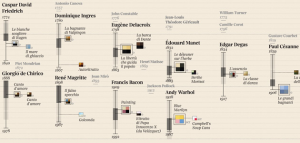There is a great deal of confusion about what growth hacking means. For many the line between it and traditional content marketing is, at best, blurred. As Google searches demonstrate, even those who have a grasp on the definition struggle to understand how to get started and who to look to.
Rock Content Engage Magazine held a growth hacking chat and asked four of the best growth hackers out there to answer those questions. We were joined by Julian Weisser, Growth Hacking/CMO at DNADietPlans.com; Lincoln Murphy, Customer Success Evangelist at Gainsight; Casey Armstrong, a full stack marketer who focuses on customer acquisition and Morgan Brown, Head of Growth at TrueVault and Qualaroo.
They offered definitions, examples, tips for novices and shared personal stories about how they got started and who inspires them.
On what is (and isn’t) growth hacking …
There is an oft-cited blog post by Danny Sullivan in which he argues many growth hacking efforts are just content marketing in disguise. Our panel took issue with that:
The Danny Sullivan quote is the typical backlash against the term. It often tries to equate traditional marketing tactics with new new term and then use that false relationship to debunk it. In fact, growth hacking isn’t building a social media audience. Nor is it using SEO. It isn’t confined to any one marketing tactic. — Morgan Brown
First, let’s define hacking. Paul Graham describes it as doing something in an ugly way (GSD) and/or beating a system. Growth hacking can be quick and dirty or well-planned and elegant. Either way, being clever can get you far if you keep at it and constantly measure your results as you experiment. — Julian Weisser
Growth hacking is really just creative, experiment driven marketing at scale, which at the end of the day, combines many of the “existing” marketing tactics AND creates new ones. Psychology + Storytelling + SEO + API Hacking might equal ONE “growth hack”. — Casey Armstrong
I don’t think the argument is whether growth hacking is marketing or not. I think most of us would agree it is marketing. In fact, Sean Ellis calls it experiment driven marketing. So the question is not whether it’s marketing or a new type of marketing, more that it’s a mindset and approach that is applied to new and existing channels. — Morgan Brown
On growth hacking superstars …
Austen Allred. I think anyone who shares what they learn is most admirable and Austen’s “Guide to User Acquisition” is top-notch discussing how to use Twitter and the press to get users. FAST. Austen practices what he preaches and his company GrassWire is an exciting story of growth. — Julian Weisser
I’ve got to start with Sean Ellis. But somebody who hasn’t gotten a lot of publicity lately (likely) because he is heads down with his startup is Andy Johns. Heard of Facebook, Twitter, Quora? Plus, he has shared a ton of his insights. — Casey Armstrong
I would say from a people perspective it’s definitely: Sean Ellis, Andy Johns, Neil Patel, Hiten Shah, Josh Elman [and] Elliot Shumkler. — Morgan Brown
On getting started …
I learned quite a bit from Sarah Hodges. She runs Intelligent.ly (an educational events series in Boston) and leads marketing at Smarterer. She was the first person to really show me how all of the pieces of a startup work together. She’s also been a fantastic connector and pushed me into the deep-end of the Boston tech swimming pool early on. Anyone who wants to push you forward beyond your comfort zone is immensely valuable. — Julian Weisser
I gravitated to “growth hacking” as a catch-all for what I’d already been doing. I’ve helped SaaS vendors take advantage of network effects, add viral expansion to their products (yes, even boring B2B solutions), leverage lesser-known or under-utilized distribution methods for a very long time. My background is supply chain management so I really understood how networks can drive expansion. And I learned marketing on my own so I didn’t have a structured pedigree to get in my way. — Lincoln Murphy
I think what has helped me is the following: Learning from smart people; acquiring skills to execute on ideas; being continuously curious. There are great foundational books on psychology and marketing that are essential. There are skills like analytics, code, copywriting, etc. that are essential. And then there’s willing to take a risk and be creative. — Morgan Brown
I will steal the words of Patrick Vlaskovits, who is often more eloquent than I am: “A growth hacker, like a ‘visionary’ [and] is only anointed with the sacred oil of growth hacking ex post facto. Once you have delivered huge and exponential growth in users/leads/sales, you are a growth hacker. Before that, you are a growth rookie.” Ain’t nuthin’ wrong with being a growth rookie. — Casey Armstrong
On the future of growth hacking in content marketing …
Two truths: 1) Online marketing channels continue to be flooded by traditional ad dollars, making them more competitive. 2) Channels will continue to rise/fall and evolve requiring new approaches. — Morgan Brown
I think the real question is, “How does content marketing fit into the world of growth hacking?” The form factor of content will undoubtedly change. We’ve seen everything from long-form blogging to short-form (Twitter) to “one-word-form” (Yo). — Julian Weisser
Future of growth hacking is that it becomes a required part of the marketing effort. IBM, Intuit, etc. are all building growth teams to complement marketing teams. It will no longer be about campaign-based marketing. — Morgan Brown
Similar to the path of SEO being a buzzword and now a necessity, just takes time for companies to accept it. Technology & competition continue to expand, therefore, so will growth hacking. More than anything, you need to for your company to dominate. — Casey Armstrong
Just like in the customer success world, where it started as a functional role, then a department, and finally — what’s required [is] a top-down, corporate initiative, growth (hacking/marketing) will also have to be top-down driven and a culture built that embraces and empowers it. — Lincoln Murphy







